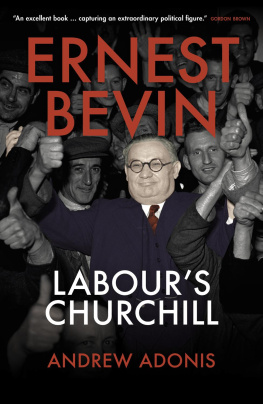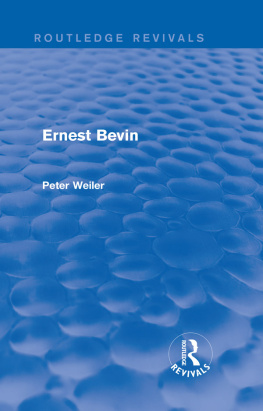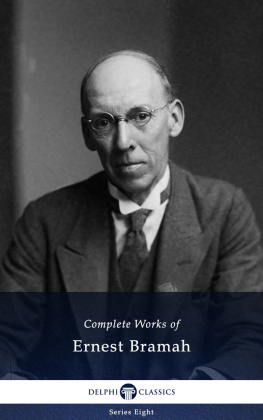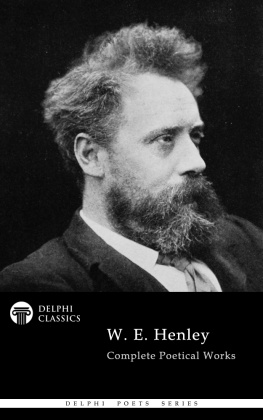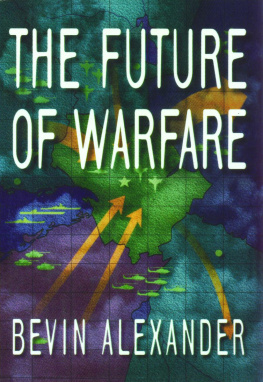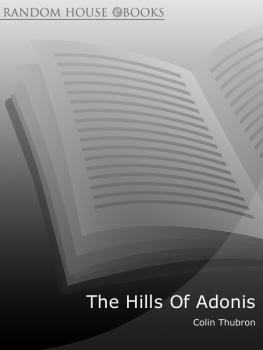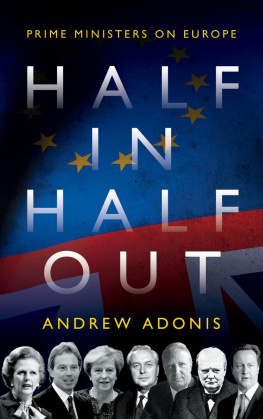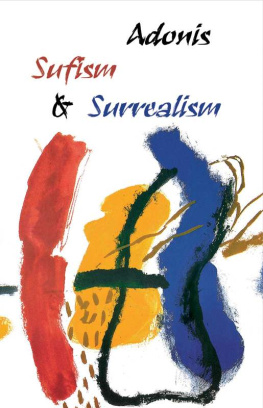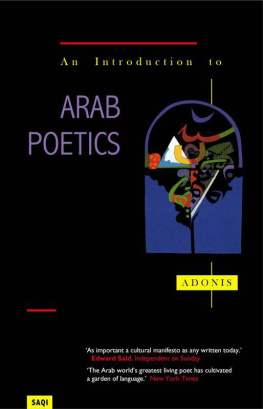Adonis Andrew - Ernest Bevin
Here you can read online Adonis Andrew - Ernest Bevin full text of the book (entire story) in english for free. Download pdf and epub, get meaning, cover and reviews about this ebook. year: 2020, publisher: Biteback Publishing, genre: Non-fiction. Description of the work, (preface) as well as reviews are available. Best literature library LitArk.com created for fans of good reading and offers a wide selection of genres:
Romance novel
Science fiction
Adventure
Detective
Science
History
Home and family
Prose
Art
Politics
Computer
Non-fiction
Religion
Business
Children
Humor
Choose a favorite category and find really read worthwhile books. Enjoy immersion in the world of imagination, feel the emotions of the characters or learn something new for yourself, make an fascinating discovery.
- Book:Ernest Bevin
- Author:
- Publisher:Biteback Publishing
- Genre:
- Year:2020
- Rating:4 / 5
- Favourites:Add to favourites
- Your mark:
- 80
- 1
- 2
- 3
- 4
- 5
Ernest Bevin: summary, description and annotation
We offer to read an annotation, description, summary or preface (depends on what the author of the book "Ernest Bevin" wrote himself). If you haven't found the necessary information about the book — write in the comments, we will try to find it.
Ernest Bevin — read online for free the complete book (whole text) full work
Below is the text of the book, divided by pages. System saving the place of the last page read, allows you to conveniently read the book "Ernest Bevin" online for free, without having to search again every time where you left off. Put a bookmark, and you can go to the page where you finished reading at any time.
Font size:
Interval:
Bookmark:
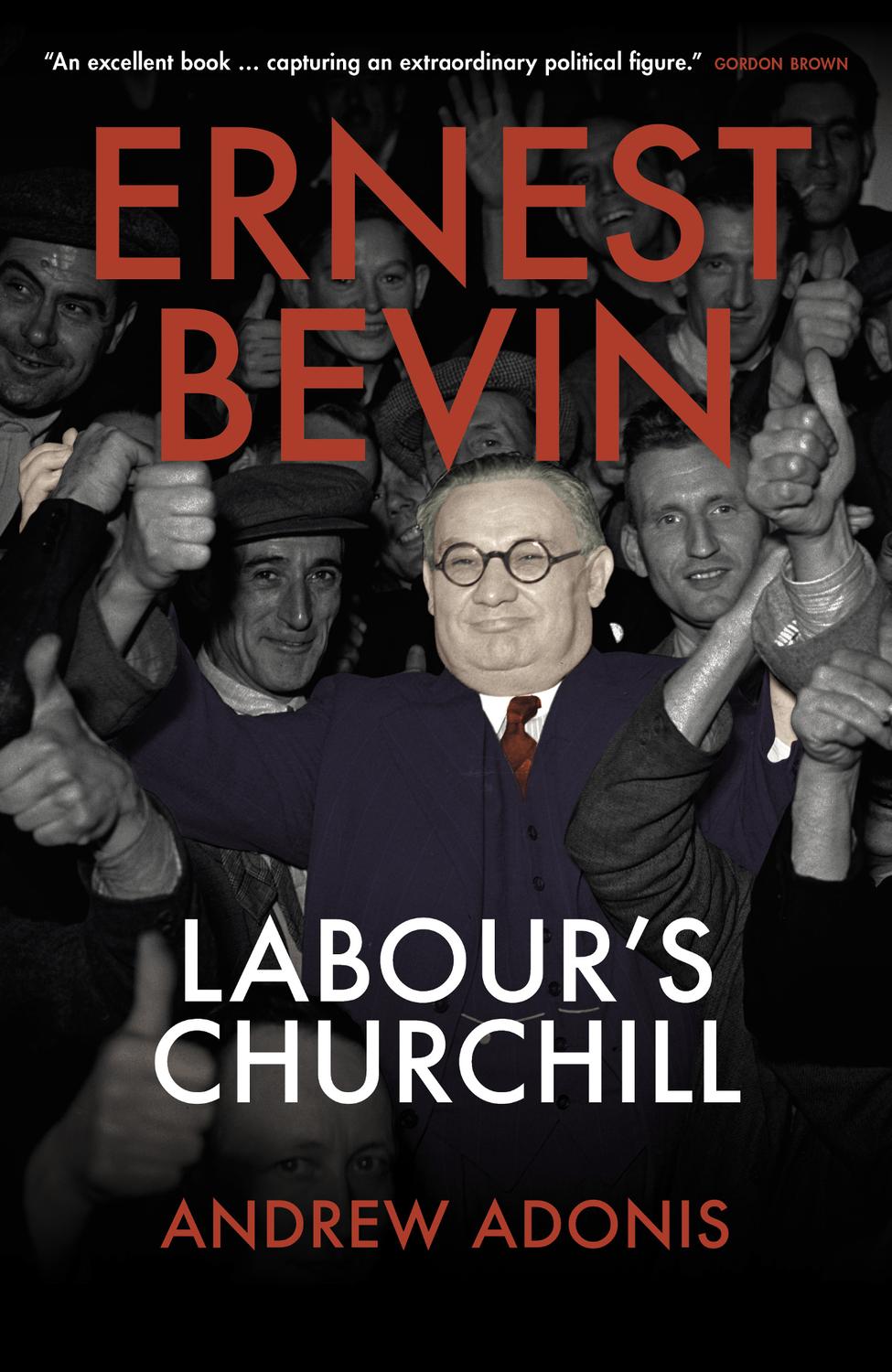
In memory of Roy Jenkins:
friend, mentor, inspiration,
for whom Bevin was one of the greatest.
vi
vii
A working-class John Bull.
S ir W inston C hurchill
He could neither read, write nor speak, and he did all three triumphantly.
A non .
Ernest Bevin was not a working man who became a statesman. He remained a working man who added statesmanship. In this he was the first of his kind.
N ews C hronicle
I like to build, brothers.
B evin to his union delegates
They say Gladstone was at the Treasury from 1860 to 1930. Im going to be Minister of Labour from 1940 to 1990.
B evin in C hurchills W ar C abinet
When you strip all these things down which produce political ideologies and get down to the masses, what do they want? They want to live! They want to be free, to have social justice, to have individual security, to be able to go home, turn the key in the lock and not be troubled by a secret police. Why not let them live? Why set them at each others throats? That is the basis of my approach to the problems of a war-scarred Europe and world.
B evin as F oreign S ecretary
viii
x
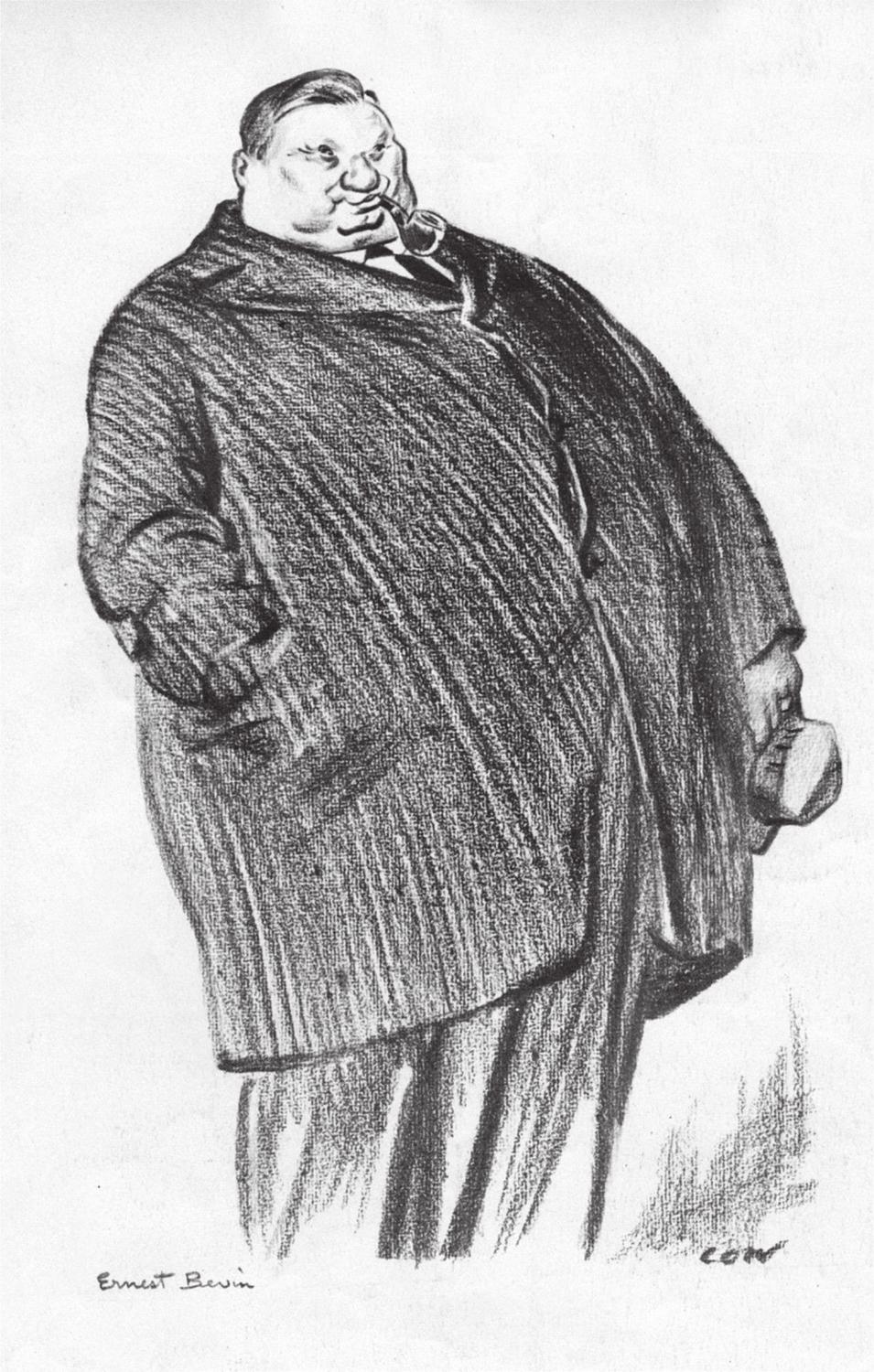
A working-class John Bull. New Statesman/David Low/The Print Collector/Print Collector/Getty Images
E rnest Bevin was one of the greatest and most inspirational leaders of the twentieth century. He was Labours Churchill.
As Foreign Secretary in Attlees post-war government (194551), Bevin was largely responsible for keeping communism and Stalin out of Western Europe. He took the lead in creating West Germany, NATO and the transatlantic alliance, all of which underpin European democracy and security to this day. As Minister of Labour during the Second World War (194045), he was at Churchills right hand, masterminding the home front while Churchill commanded the battle front. In the process, and by design, he brought the labour movement into government and put industrial partnership and Keynesian collectivist ideas and institutions at the heart of the British state until they collapsed in the era of Margaret Thatcher. As leader of the Transport and General Workers Union (192245), he created the free worlds then biggest and most formidable trade union.
It was three decades of almost unparalleled productivity and constructive achievement.
To my surprise, after living with him for a year, I have come to see xii Bevins greatest interlocutor not as Churchill but Stalin. Bevin got the full horrific measure of the brutal Soviet megalomaniac better than any other leader of his generation and did more to defeat him than anyone else in the seminal six years after 1945. For the future of Europe and Western civilisation, these six years were as crucial as the previous six, which saw Churchill lead the defeat of Hitler and Nazism.
Bevin stood up to Stalin and largely outmanoeuvred him in Western Europe. He painted and partly achieved a vision of a far better, fairer democratic society that refuted the cruelty and abominations of communism and the Stalinist war of all against all. This is the biggest story in the following pages.
At home, Bevin did more than anyone in British history to turn the working class into a political force and Labour into a governing party. By doing so, he transformed the lives of working people. He was decisive in ensuring that the post-Second World War era was one of social progress and international security, in stark contrast to that which followed the First World War when Britain and Western Europe went sharply backwards. He had been a trade union leader in the thick of it after 1918 and he showed that he had learned the lessons well after 1945.
To understand modern Britain, warts and all, you need to understand Ernest Bevin. Thats what this book seeks to do. He is fascinating as an extraordinary human being, rising from extreme poverty and disadvantage to become an international leader of unique charisma and authenticity, larger than life and full of contradictions, these latter characteristics also putting him in the Churchillian league.
Churchill, Attlee, Truman, Keynes and Marshall were among the partners with whom Bevin shaped the second half of the twentieth xiii century. Indispensable to these partnerships were his extraordinary leadership, ideas, pragmatism and staying power. Serving in high executive office for nearly thirty continuous years, his career at the top of twentieth-century British public life was of a duration matched only by Churchill, Lloyd George and Harold Wilson.
Just as Bevins successes shaped post-war Britain and the West, so did his failures. He was an unreconstructed imperialist, which made him all too literally Labours Churchill. The disastrous postwar handling of Israel/Palestine and the failure to take seriously the initiation by France and Germany of the European Union were rooted in his imperialism, casting shadows that loom large in the twenty-first century, particularly over Brexit.
Living with Bevin for a year, I am seized by his ambivalence. He was a committed democrat yet a tough authoritarian; a socialist yet an imperialist; a fervent patriot as well as an ardent internationalist; a trade union leader and working-class icon who became thoroughly middle class, even pan class. By the 1930s there was no cloth cap but instead a bowler hat, cigars, well-cut suits and an art deco apartment in Kensington. During the war he even joined the Garrick Club. Yet, to the end, he was unseduced by money and status. The Garrick membership was mostly to hob-nob with actor managers from the world of entertainment like J. Arthur Rank, Basil Dean and Seymour Hicks, pan-class impresarios like himself, who became his friends and even family connections.
Bevin has receded in public consciousness, which is another reason for writing this book. His surname is routinely mixed up with Bevan, whom he called his namesake. Wikipedia even notes under Ernest Bevin, Not to be confused with Aneurin Bevan. Yet whereas Bevan has become a Labour household god for founding xiv the National Health Service (the closest thing the English people have to a religion), Bevin went out of fashion as just a man of power. Nye Bevan was a romantic, mythologised by Michael Foot, while Bevin was a pragmatist whose admirers wrote no hagiography. In fact, Ernie Bevin had social democratic principles and passions every bit as profound as Bevans, and without Nye and Ernie together, we would not today celebrate the Attlee government.
Bevin was first and foremost a working-class trade union leader. This too cast him in the shade after his death, as a breed apart from many literary and political people, including the increasingly large proportion of middle-class Labour politicians. Meanwhile the trade unions themselves, too often unpragmatically led in the decades since Bevin, allowed his legacy to wither. Bevin would probably have been aghast that the most recent leader of his own union, incongruously renamed Unite, is Len McCluskey, patron of Jeremy Corbyn, the most unsuccessful Labour leader since George Lansbury, whom Bevin ousted in the dramatic Labour Party conference of 1935 before he had even fought an election. Lansburys replacement was Clement Attlee, sustained and partnered as Labour leader by Bevin for the next sixteen years, eleven of them in the two most transformational governments in modern British history between 1940 and 1951.
My relationship with Ernest Bevin was the deepest of my political life, Attlee said in retirement. Ernest looked, and indeed was, the embodiment of common sense. Yet I have never met a man in politics with as much imagination as he had, with the exception of Winston. Attlee saw in Bevin a constant quest for action, not the fatalism of inaction, in the face of social and economic crisis. This impregnable AttleeBevin partnership underpinned the extraordinary strength and success of both the Churchill and the Attlee xv governments of the 1940s. It was in some ways the golden age of the British state.
Font size:
Interval:
Bookmark:
Similar books «Ernest Bevin»
Look at similar books to Ernest Bevin. We have selected literature similar in name and meaning in the hope of providing readers with more options to find new, interesting, not yet read works.
Discussion, reviews of the book Ernest Bevin and just readers' own opinions. Leave your comments, write what you think about the work, its meaning or the main characters. Specify what exactly you liked and what you didn't like, and why you think so.

